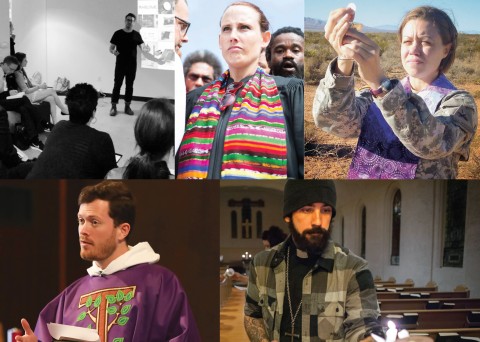What does a seminary education prepare you to do?
Six of my Duke Divinity students, ten years later

In the fall of 2008, with the impending election of Barack Obama and the first entrance of members of the millennial generation into graduate school, one such millennial came into my office at Duke Divinity School and asked if I could help him start an online theological journal. With his hair sculpted to stick up as if unintentionally, Ben McNutt looked full of both nerves and bravado. Soon, over tacos, half a dozen students and I sketched out the start of Confessio, much as Ben had envisioned. Unwittingly, we also laid the groundwork for a rival satirical journal called Depressio, which was much more widely read and commented on.
This year marks the ten-year anniversary of this cohort’s graduation. I found myself wondering where they are and what theological education had brought them in their lives. As I tracked several of them down and asked them, I was startled to see just how diverse their occupations and preoccupations had become. Seminaries may claim that we prepare people for a broad range of careers, but I don’t know that I had ever imagined them as quite this broad. After listening to their stories, I have concluded that theological education perhaps best equips people to make a go of the Christian life, with far more possible outcomes than just preacher or professor.
Ben came to Duke from conservative evangelicals in Florida, where his dad is a Southern Baptist minister. He planned to use divinity school to go into the family business, though he was always more interested in publishing than pastoring. After graduation, he took over my role at Duke’s web magazine Faith and Leadership, with the idea of helping the church reinvent itself for a new day. But he soon left the church all together. He moved to New York and worked for a prestigious publisher reading slush-pile manuscripts before taking up a marketing gig to pay the bills.





